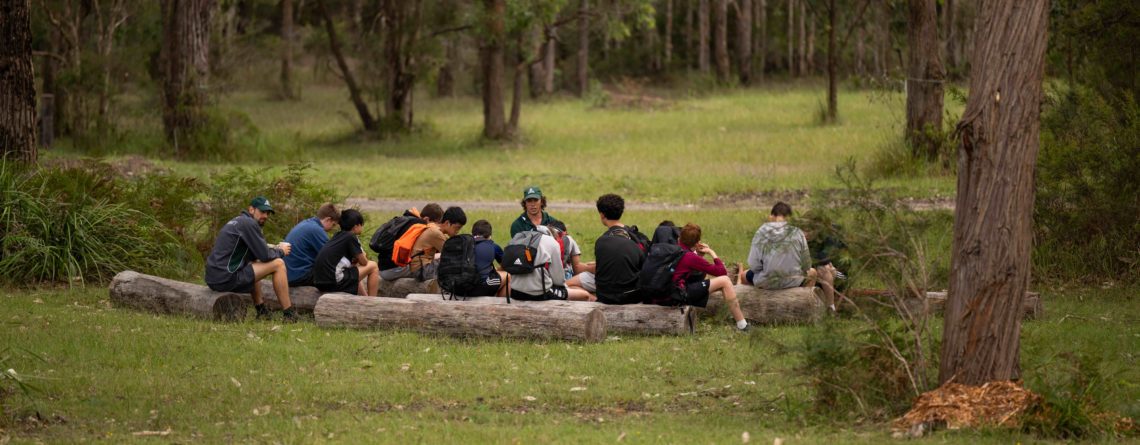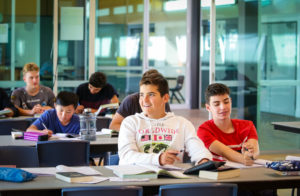Growing, together
Students in Year 9 at Trinity have the privilege of traveling to the Field Studies Centre in Woollamia to spend a full term away from their homes, being challenged physically, academically, emotionally, and spiritually.
The Field Studies Programme (FSP) is an integral part of a Trinity education, a defining experience that is spoken about long after students graduate. At the heart of its staying power is its impact on wellbeing.
It is designed to stretch and challenge students. All the planning in the world, however, can’t account for the unique responses of students as they go through the programme and often, the students themselves might not even realise how much they’ve grown.
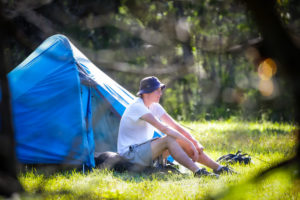
Mr John Allen, Head of the Middle School, says that this kind of “hidden curriculum” is one of the programme’s strengths.
“The programme is adventurous and experiential. The students get a chance to break out of the four walls of the classroom and engage in a challenging, adventurous life. There’s hidden learning in there – it’s not always obvious to them what they’re really learning.
“It’s all about challenge and support. We provide them with experiences that challenge them in a variety of ways, but that support is always there in the background.”
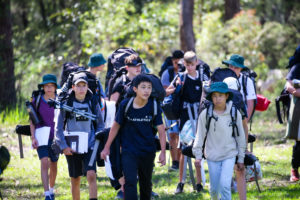
An example of this can be seen as the students are arranged in pastoral groups, with two tutors assigned. The groups are a structure provided by the team and dictate who the students will be in a dorm with, who they’ll undertake the Outdoor Education Programme with and more.
While in these groups, the students have opportunities every day to strengthen relationships with their peers that they may not have put time into otherwise. There are also many opportunities for leadership as they have a turn at being dorm leader, take care of equipment or embrace leadership roles on expeditions.
But the emphasis on strengthening wellbeing doesn’t stop there.
“The boys undertake a ‘values journey’,” Mr Allen says. “It’s a way for them to articulate their own values and see how their actions are lining up to those values. They look for alignment and misalignment.
“This exercise helps them to navigate positive decision making. It hits all the areas of self worth and self esteem. When students develop in these areas, they can make positive decisions. “
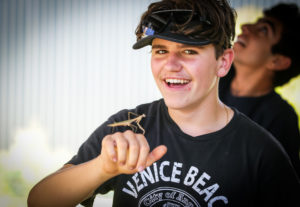
Mr Tim Knowles, Head of the Field Studies Centre, agrees that this kind of reflection is a core part of the experience.
“There’s a big emphasis on self-reflection and opportunities for journal writing. Gratitude and resilience are at the heart of the programme. The boys also get an opportunity to reflect around the campfire each night. Sitting shoulder-to-shoulder is a sure way to get the boys to be more willing to open up and this self-reflection is essential.”
Times have been tough over the last two years, with Mr Knowles acknowledging the difficulties posed by the pandemic.
“It’s such an important rite of passage, so we’ve done everything we can to make sure no one misses out.”
Mr Allen adds that the Field Studies Programme is “a fundamental ingredient” in Trinity life.
“That time over lockdown just made it clear that this programme was vital. Feedback from parents was overwhelmingly encouraging; ‘Can you please do whatever you can to make this happen?’ and it was clear that the boys were keen to make sure they experienced this key aspect of a Trinity education. They didn’t want to miss out.”
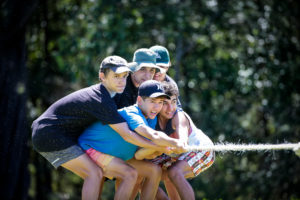
The programme isn’t everyone’s cup of tea. Mr Allen laughs as he says, “We have plenty of boys jumping out of their skin to go and others who are not but when they’ve experienced it, they almost always tell us that they understand the importance of the programme. They might say it was ‘good’ or it was ‘tough’ but they always realise the importance.”
Mr Allen and Mr Knowles agree that the ‘shared experience’ of the Field Studies Programme is important, regardless of how each student may feel about the programme beforehand.
“Within their pastoral groups and beyond, there are opportunities to deepen relationships as they all go through this life-changing and significant experience together,” Mr Knowles says. “They learn to rely on each other through this shared experience. They all have different strengths and weaknesses and there are so many ways that they support each other. They do so much of it themselves – our support is in the background.
“At the end of the programme, each boy gets a chance to ring the bell and walk through a guard of honour made up of the staff team. You can’t fake the expression on their faces. They know they’ve achieved a lot and have grown.
“The programme is empowering. There are so many opportunities for every boy to succeed.”
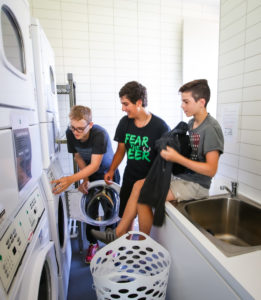
The students go beyond being empowered themselves, they start to take ownership of it and empower those around them.
“It’s important for the students to know that they have power,” Mr Allen says. “To be aware of the power they have to positively impact on the people around them. You can see them discover this as the programme goes on. You see students encouraging and cheering each other on.”
It’s clear that the programme builds self esteem and self efficacy, that students’ sense of self is built upon and strengthened in the environment of the Field Studies Centre. However, Mr Allen reminds us all that these results are no accident.
“The Field Studies Centre is not an island,” he explains. “The programme is an integral component of the social / emotional learning that boys take part in throughout the Life Skills Programme. It’s a significant feature of it.”
There is a thorough handover from the support staff, and constant, regular contact. We’re not isolating them – there’s support in the background.”
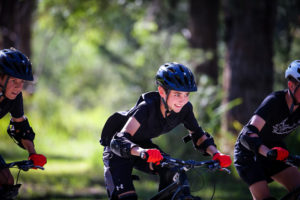
The success of the Field Studies Programme can be credited to the staff. Mr Allen says the team is “exceptional” and “out of this world”.
Mr Knowles agrees, “We have a strong team that brings elements of Outdoor Education and Pastoral Care together.”
Key members of the team include Mr Tim Knowles (Head of the Field Studies Centre), Mr Wayne Pitts (Outdoor Education Coordinator), Ms Rebecca Olive (Assistant – Campus Administration), and Mr Martin Lang (Director – Campus Administration), supported by a team of Outdoor Educators, Teachers, the amazing kitchen staff and a Property Manager.
Their hard work allows the students to thrive in a challenging environment and at an important time in their lives.
“It’s a pivotal time for boys,” Mr Allen says. “They’re seeking independence and looking for answers, testing things for themselves. The Field Studies Programme taps into the essence of this stage of life and the stint away reinforces skills they learn in the Life Skills Programme, serving them well into the Senior School and beyond.
“We want them to become lifelong learners, inquirers, healthy risk takers – young men of good character.”

